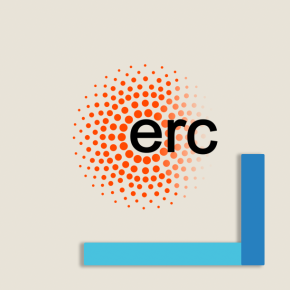
12 ERC Advanced grants for the CNRS
The European Research Council (ERC) has just announced the results of the "ERC Advanced grant 2022" call for established researchers. With 12 grants, the CNRS is the most endowed host institution.
This year, the European Research Council (ERC) will fund 218 researchers with "Advanced" grants, for a total amount of €544 million, in the framework of the Horizon Europe programme. These grants will enable scientists, recognized in their field at the national and international level, to carry out innovative, high-risk projects that break new ground in their discipline or other fields. Aimed at established researchers with significant research results over the last ten years, these grants are at a higher level of experience than the Starting grants (up to €1.5 million and aimed at European project leaders who obtained their PhD 2-7 years ago) and the Consolidator grants (up to €2 million and 7-12 years after the PhD). These projects have a duration of 5 years and each has a maximum budget of 2.5 millions euros.1
Of the applications, 23% were submitted by female researchers, the highest proportion since the start of the Advanced program. In total, approximately 13.2% of the 1647 applicant projects were funded, in conjunction with universities, research centers, and companies in 20 European countries, with France counting 32 grantees.
With 12 laureates for which the organization is the host institution, the CNRS is the institution that has received the most grants at the European level, ahead of the Weizmann Institute of Science (7 projects), the universities of Oxford and Cambridge (4 each), and the Max Planck Institute (4). These projects concern the physics, chemistry, Earth and universe sciences and engineering (PE panel - 8 projects), life sciences including ecology and the environment (LS panel - 3 projects), as well as the humanities and social sciences (SH panel - 1 project).
- Sandrine Bony, CNRS senior researcher at the Laboratoire de météorologie dynamique (CNRS/ENS PSL/École polytechnique/Sorbonne University), for the MAESTRO project "Mesoscale organisation of tropical convection" (PE10 panel)
- Didier Bourissou, CNRS senior researcher at the Laboratoire hétérochimie fondamentale et appliquée (CNRS/Université Toulouse Paul Sabatier), for the Gold-Redox project "Pushing Gold beyond its common redox states" (panel PE5)
- Anne Davaille, CNRS senior researcher at the Fluides, Automatique et Systèmes Thermiques laboratory (CNRS/Université Paris-Saclay), for the SOFT-PLANET project "Convection and transfers in a textured partially-molten planet from the magma ocean stage to present-day solid-state convection" (panel PE10)
- Philippe Lalanne, CNRS senior researcher at the Laboratoire Photonique Numérique & Nanosciences (CNRS/IOGS/Université de Bordeaux), for the UNSEEN project "Nanostructure-Based Design of Visual Perception using High-Index Disordered Metasurface Physics" (panel PE11)
- Philippe Poulin, CNRS senior researcher at the Centre de recherche Paul Pascal (CNRS/Université de Bordeaux), for the Perla project "Percolation and conductivity in fluids containing rod-like particles" (panel PE3)
- Olivier Pouliquen, CNRS senior researcher at the Institut universitaire des systèmes thermiques industriels (CNRS/Aix-Marseille Université), for the CohPa project "Cohesion in Particulate media" (panel PE3)
- Nathalie Vigier, CNRS senior researcher at the Laboratoire d'océanographie de Villefranche (CNRS/Sorbonne Université), for the SeaLi2Bio project "Biological Isotopy of Lithium in Littoral Zones" (panel PE10)
- Laurent Vivien, CNRS senior researcher at the Centre de nanosciences et de nanotechnologies(CNRS/Université Paris-Saclay), for the CRYPTONIT project "Crystalline Oxides Platform for Hybrid Silicon Photonics" (panel PE7)
- Rufin Vanrullen, CNRS senior researcher at the Centre de recherche cerveau et cognition (CNRS/Université Toulouse Paul Sabatier), for the GLoW project "The Global Latent Workspace: towards AI models of flexible cognition" (panel SH4)
- Thomas Lenormand, CNRS senior researcher at the Centre d'écologie fonctionnelle et évolutive (CNRS/EPHE-PSL/IRD/Université de Montpellier), for the RegEvol project "The evolution of cis and trans-regulators in eukaryotes" (panel LS8)
- Gilles Mithieux, CNRS senior researcher attached to the CNRS Directorate General for Resources, for the IGN project "Intestinal Gluconeogenesis: Emerging Regulator of Energy Homeostasis" (panel LS4)
- Teva Vernoux, CNRS senior researcher at the laboratoire Reproduction et développement des plantes(CNRS/ENS Lyon/Inrae), for the TEMPO project "How plant cells set the tempo of rhythmic shoot construction" (panel LS3)
This article was translated by AI with human oversight. While every effort has been made to ensure the accuracy of the translation, the CNRS is liable only for the French version.
- 1For each grant, an additional amount can be provided under specific conditions.


